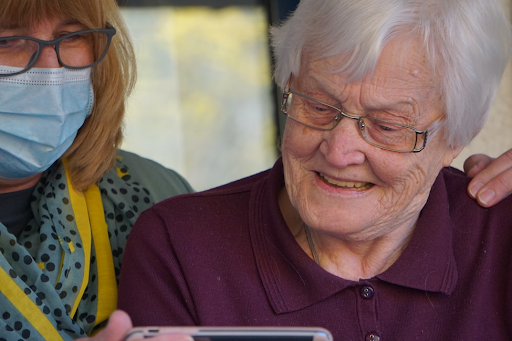Caring for your aging parents at home marks the beginning of their long-term care. Choosing to provide care at home instead of assisted living and retirement facilities allows your aging parent to remain in a familiar environment and significantly saves on care costs. In most cases, the responsibility of caring for aging parents is passed on to their adult children. If age is slowly catching up with your parents or grandparents, below are a few tips for caring for them at home.
Table of Contents
1. Enlist Professional Help Early
Caring for the elderly is a big responsibility that gets increasingly difficult as they age. Daily needs and demands of aging parents increase with a declining level of dependence. While your entire family might be involved in providing care, enlisting the services of professional home caregivers, such as Husky Senior Care, can come in handy.
Finding a respite care provider eliminates the pressing needs that can interfere with the schedules of different family members. Professional in-home caregivers help with meal preparations, laundry, errand running, scheduled and unscheduled doctor visits, and other tasks.
2. Make the Necessary Home Modifications
You should evaluate your home and make the necessary adjustments to accommodate a comfortable elderly living. While some changes are simple fixes, others require extensive modifications to eliminate safety hazards. Below are some crucial modifications:
- Improve overall home lighting
- Install grab bars and handrails in the toilet and shower
- Install wheelchair ramps
- Tuck away electrical cables and wires to prevent falls
- Replace bathroom mats with non-skid mats
- Declutter any unnecessary furniture and other items
- Remove small rugs with raised edges that can catch on canes and walkers or cause stumbles
- Install smoke and carbon monoxide detectors
3. Keep them Active
You should also ensure that your aging parents are actively engaged while at home. Exercising helps them improve their health and well-being and reduce the risks of falls. Unfortunately, most seniors living independently at home are isolated and lonely. Most of them develop depression, especially if their children live miles away. You should ensure that your senior parent remains actively involved with family and friends. If you can’t be home every time, in-home caregivers can step in.
4. Provide Healthy Meals
Diet is also crucial for the general health and well-being of aging adults. Unfortunately, seniors can easily become malnourished simply because they lack appetite or can’t shop and prepare their food. You shouldn’t allow your aging parent to skip meals or depend on processed food without nutritional value.
If you can’t cook regularly because of tight schedules or other reasons, you can prepare several meals in advance or sign up for deliverable meal plans for seniors. Most deliverable meal plans allow for special diet requests for seniors with chronic health issues, such as diabetes. You should also inquire if your senior adult qualifies for assisted meal services like Meals on Wheels.
Endnote
The increasing prevalence of the aging population isn’t a challenge for healthcare providers and national governments only. It affects everyone with aging loved ones. Ensuring that your senior adult maintains good health in their retirement age goes beyond providing medication to manage old-age health issues. Providing healthy meals, maintaining activity, and being present also helps. In-home care providers can step in for families that live far or have busy schedules.

